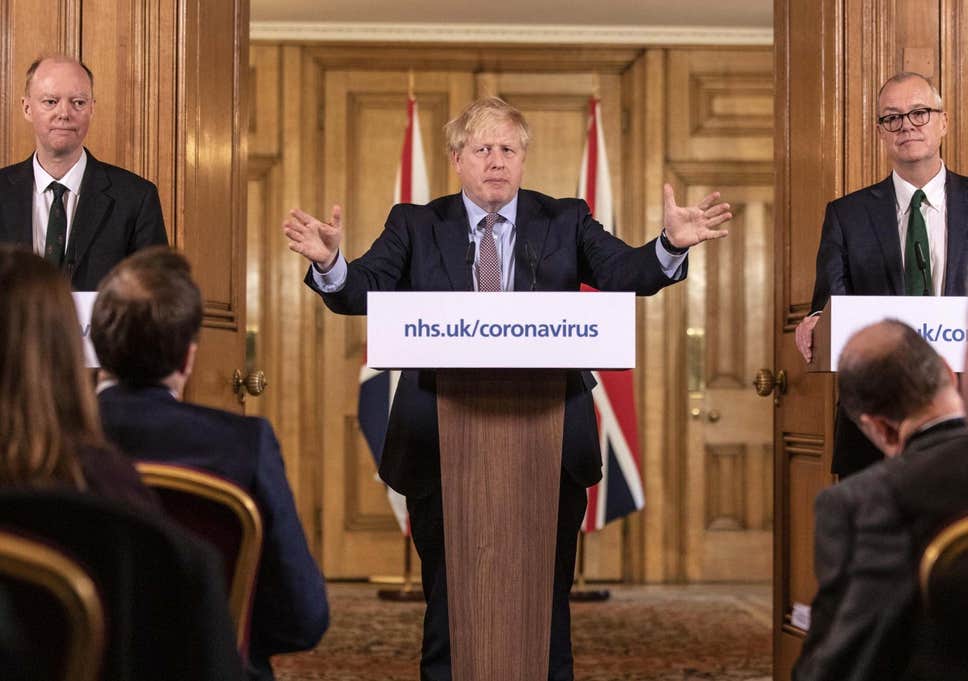In stopping the spread of the coronavirus, the most significant marker of success seems to have been how early a country moved to impose social-distancing. Ireland, a close comparator to the UK (being another European island nation), took pre-emptive action, cancelling mass gatherings, including St Patrick’s Day festivities early in March, while the UK took over a week to impose measures in kind, with race-goers thronging at the Cheltenham Festival as Ireland locked its schools’ gates. Ireland has now had 486 Covid-19 related deaths, while the UK stands at 14,576 as of the 17th April. Of course, Ireland is a smaller nation, and Dublin is not the global behemoth that London is, but this does not satisfactorily explain the gulf between the two nations.
It would be easy to say that this is yet another example of governmental incompetence, or even more cynically, that the UK’s greater scale of infection was at least partially intended, with the delay allowing the virus to gain a foothold in society so that herd immunity could take effect. Regardless of this, the UK’s initial inaction was at least partly predicated on the presumption that the population as a whole would not tolerate such a wide ranging and prolonged period of social isolation. If the shutters were brought down on our lives too soon, the fear among our governing class was that the nation’s will would collapse at the crucial moment.
Given the nation’s response to isolation, the fact that our death rate is higher than it could have been because the government did not have enough faith in the populace is a dispiriting one. Rather than being populated by self-centred individuals who would spit in their neighbour’s eye, given the chance, the UK is filled with those who are willing to sacrifice almost every facet of their normal lives in pursuit of the greater good. The papers may be filled with pictures of sunbathers in parks or people massing on bridges, but the level of compliance has astonished public officials, with the overwhelming majority dutifully sitting at home unless venturing out on a state-sanctioned constitutional.
In part, this compliance is common sense. We are facing an invisible threat that can only be defeated by denying it the opportunity to spread. For those who are not key workers, inaction is literally the only course of action. But what this compliance also reveals is that, when it comes down to it, the people trust the government. While we may all attack parties of opposing ideologies, and castigate whoever happens to be in power for being fundamentally useless, most of the public will assume that if the government is pursuing a particular policy, it has a legitimate reason to do so. They may not like it, and they may think that different issues should be prioritised, but they will trust that it is a coherent course of action.
Such trust does not emerge, like some hero out of legend, only at times of dire need, but is instead a constant murmur in the background. This trust explains issues like Brexit, where many of those who voted for it will have assumed that the government would not offer the people a fantasy on the ballot-paper. More relevant, however, is what the government can learn from this trust in proposing social justice policy. Many of the deeply flawed elements of the justice system are predicated on the assumption that they are what the public want, and that if the public don’t get want they want, they will reject both the policies and the party that proffers them.
While this is not flawed logic, it is circular. For instance, if we take prison policy, public opinion is generally in favour of hardline approaches, focusing on punishment rather than rehabilitation. This opinion is based, not unreasonably, on the presumption that harsh punishments deter future criminals, and in turn, on the presumption that if they didn’t, the government wouldn’t pursue them. The death penalty in America is possibly the best example of this, with the American public widely believing that the death penalty deters crime. Most are ignorant of the fact that the data completely repudiates this, with states without the capital punishment having a lower crime rate than their more vengeful counterparts, but politicians – who should know better – still continue to pursue capital punishment, because the public wants it, and because they don’t have the courage to tell them the truth.
If we turn back to the UK, we can see a parallel set of circumstances justifying the cuts that have eviscerated the justice system. The public has an image of lawyers as gluttonous fat cats, swilling Sancerre off the back of easy government money. When the people hear of legal aid cuts, or other cuts to the justice system, they don’t imagine barristers travelling unpaid to Wales for a cancelled trial, or court buildings without a hot water system, but a lawyer choosing between a swimming pool or a tennis court instead of buying both, or a judge having to forego silver service at lunch. If the realities of the justice system were made clear, and the consequences of brutal cuts spelt out, such as unrepresented defendants having longer, more costly trials, and more frequent appeals, public support for counterproductive, hardline measures would wane.
Much will be learnt from this crisis, but at the forefront of most politicians’ minds should be that policy doesn’t always have to make people happy – it doesn’t need a focus group’s seal of approval. People want policy that they like, but more importantly, they want policy that is effective in creating a functioning and efficient state. The government’s focus should be on offering policy that meaningfully engages with the issues faced by society, rather than policy that panders to people’s wants and prejudices, and trusting that the people will accept that even if it’s not what they want, it might be what they need.







